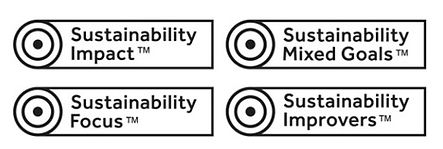'NEW' FINANCE: GREEN / SUSTAINABLE FINANCE
SF, SRI, Impact Investing & Demographically Diverse Investment Marketing
How do we write Investment Materials that non-specialist Clients /Customers can understand & relate to? How do we attract new and non-traditional demographics to investing? And how do we communicate our stance on Sustainable Finance and Socially Responsible Investing?
Research by Coutts and others shows clearly that different demographics react differently to different ways of writing and marketing finance and investment, with Coutts finding that novice female investors, for example, find the over-use of financial jargon off-putting and difficult to relate to their own life goals (See my Blog Post on why billions of dollars are lost annually through a failure to attract female investors, here). Similarly, women, as well as younger investors, show a greater interest in Socially Responsible Investing (SRI) and Sustainable/Green Funds, and there are many other demographics that are not being catered to, with the investment world continuing to market in conventional ways. This is especially strange given many new FinTech platforms, for example, claim that their appeal is for the novice investor - whilst continuing to write as if their customers were financial experts.
In addition the world has changed and we find, simultaneously, a growing interest in Sustainable Finance and in Socially Responsible Investing (SRI) or Green / Sustainable investing (alongside, in certain countries at least, something of a backlash against this). But new demographics DO want to see that the companies and individuals with whom they do business (or entrust funds) care about these issues and that they have thoroughly looked into SRI opportunities. Note: 'greenwash' is no longer an option now that the formal labelling system has arrived:
In addition, very many businesses now, if not overtly Ethical Companies, are nonetheless extremely concerned that they are not only seen to do good but to actually do so. This will affect their own investment strategies and with whom they will and won't do business (or share equity). At the same time, the Sustainable Finance world - which in my view is doing its best - is still viewed with suspicion by many Ethical businesses.
All of this means we need to rethink how we write and market finance & investment - but it is also offers immense Thought Leadership opportunities to those who are prepared to grab them.
What then is 'The New Finance'?
If you’re wondering why I sometimes use the term ‘The New Finance’ and why you’ve never heard of it before then – to set your mind at rest - no, it’s not ‘technically’ ‘a thing’. That is to say, if you mean by ‘thing’ a currently known ‘buzz phrase’, you have nothing to worry about. In fact, if you google ‘The New Finance’ you will likely find only a couple of decade-old academic books about behavioural finance / economics (not that this is without interest). However what I'm calling 'The New Finance' - if I may reclaim the term for a new purpose - is certainly ‘a thing’ if we are talking Real World Marketing.
And it may appear at first as two or even three or more different issues, namely a) the issue of finance / investment language often being off-putting to many novice investors; b) the issues of Sustainable Finance / SRI (socially responsible investment) and the green economy; c) the general issue of diverse demographics in finance / investment.
How are (e.g.) Gendered Investment Marketing & Sustainable Finance Related?
Because both come down to the fact that there are issues with the language of finance and investment (when addressing audiences beyond the industry) that are not entirely fit for purpose in 2025. While each investor is different, the push towards Sustainable Finance, SRI and general ethical awareness is increasingly important, perhaps especially to the younger generation of investors, who are known to be very wary indeed of 'greenwash' - they can sense it a mile off. And consumer investors themselves are increasingly diverse. Many of them don't want to hear about 'bull markets, bear markets and betas'. Rather, they want investment explained to them in ways that relate to their actual lives and in language which engages rather than obfuscates and alienates.
What's the deal with so-called 'ESG'?
As a UK business but with some US clients I've been baffled at the 'politicisation' in the States of the term ESG, which in the UK is such a neutral term as to be completely unremarkable. Nonetheless once a term has become a 'hot-button', there is rarely any going back so I can see why some pro-sustainability US firms may now be wary of using the acronym in case it makes them look overly ideological. In some cases it may be simpler to change terms. In other cases there is branding authenticity at stake if you change terms now, whilst in some cases you may even benefit from maintaining the term. If you are confused, just contact us (see below). We can work out what is best for you to do.
At SLETL we are of course concerned with how things are written about. At the same time, if you want to do authentic Marketing (and Thought Leadership), we have to assume you are writing about things you are actually doing. The facts themselves, and the marketing of those facts, are intimately connected. Indeed, if they weren’t, it would be the very definition of ‘greenwash’. As such we also work with companies not merely on the writing of Sustainability, SRI or Social Value materials but on helping them articulate what is already inherently sustainable (and unique) about their approaches.
A New Approach to Marketing Sustainable Finance and Investment

Do be in touch with Susan direct at susan@susan-lawson.co.uk to arrange a chat or else Book in for a 40-min Complimentary Consultation below.
